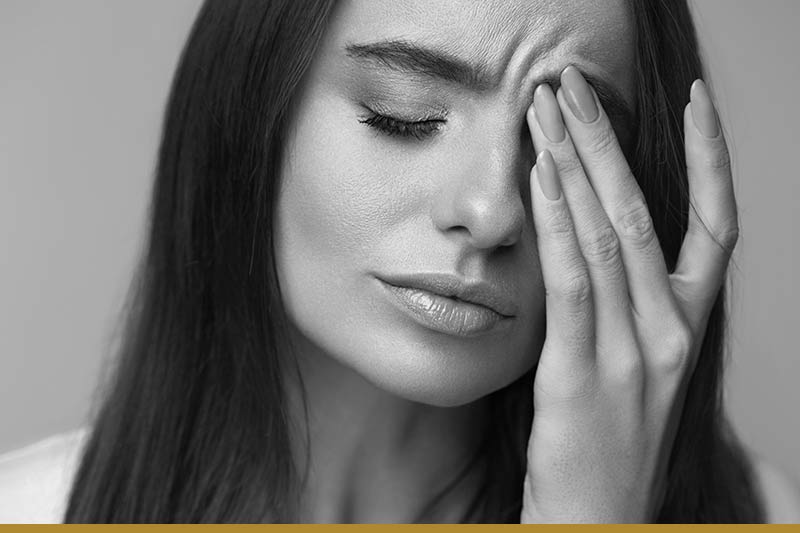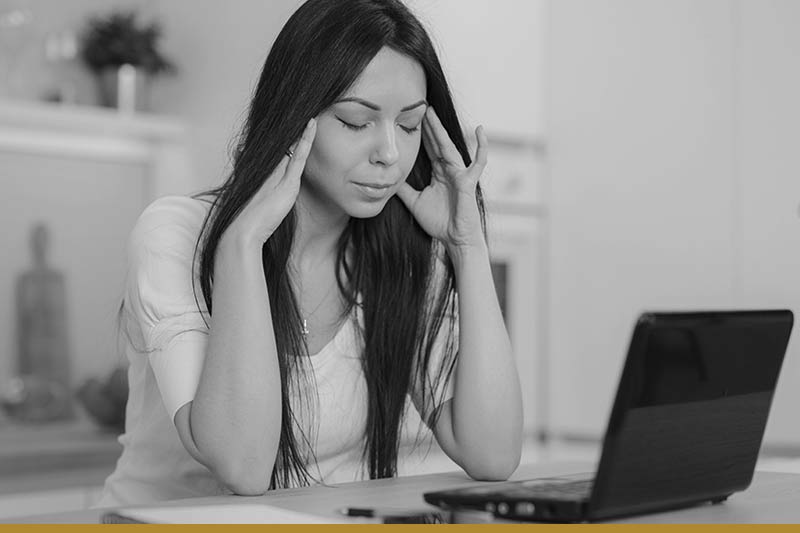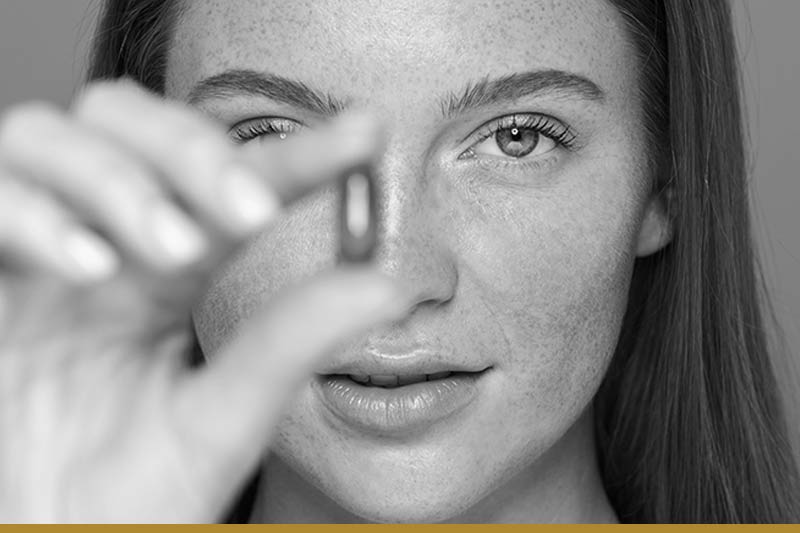Estrogen is the main sex hormone in women. It is responsible for bringing about the physical changes associated with the female body in puberty and regulating the menstrual cycle. It also regulates other bodily functions in both men and women, including heart health, bone growth, brain function, and lipid and glucose metabolism.
When a person experiences a drop in estrogen levels, it can create a host of unpleasant symptoms. This article lists the common symptoms of low estrogen and recommends effective solutions.

Women experience a drop in estrogen every month during their menstrual cycle. This is a natural hormonal fluctuation and causes mild to severe symptoms, ranging from breast tenderness and sugar cravings to stomach cramps and irritability. When the period ends, estrogen starts rising again and peaks before ovulation.
As they approach menopause, women experience a steady decrease in estrogen production. Certain medical conditions, surgery, and excessive physical activity can also cause estrogen decline. In those cases, low estrogen can cause the following symptoms.
Hot flashes manifest as suddenly feeling unbearably hot. It is one of the most common symptoms of perimenopause and menopause. Women also tend to sweat more at night during this period, soaking their sleepwear and bedsheets.
As estrogen drops, the body loses its ability to regulate temperature properly. In response, the brain is mistaken into sending signals to cool down, causing hot waves and extreme sweating.
Note: Learn more about hormonal sweating, including what causes it and how to treat it.
As estrogen levels decrease, women experience changes in their menstrual cycles. Their periods usually become less frequent and change in intensity, fluctuating from short and weak to long and heavy bleeding.
Estrogen is responsible for keeping the uterine lining and vaginal walls thick and lubricated. They become thin and dry when the hormone drops, causing vaginal dryness, discomfort, and pain.
Thinning of the vaginal walls increases the risk of bacteria entering and causing infections. This also leads to more frequent urination and incontinence in perimenopausal and menopausal women.
Vaginal atrophy, followed by discomfort and pain during sex, is a common cause of reduced sexual desire in menopausal women. Low libido can affect intimate relationships and lead to emotional problems.
Note: Discover the causes behind low sex drive in men and whether they are the same as the causes behind low sex drive in women.

Low estrogen causes a drop in serotonin levels, leading to mood shifts. Other symptoms of low estrogen, such as decreased sex drive, insomnia, and fatigue also contribute to irritability, low mood, and depression.
Note: Discover the benefits of mood-boosting supplements.
Estrogen decline can cause a lack of mental clarity via different mechanisms:
Note: Our post brain fog and hormones explains how hormonal imbalances contribute to impaired cognitive abilities. For more information on how estrogen and other hormones affect stress and vice versa, read our post on stress and hormones.
Hot flashes, night sweating, urinary incontinence, and mood shifts resulting from low estrogen can disturb sleep patterns. Women have difficulty falling asleep, or they wake up several times during the night.
Fatigue is a state of extreme tiredness often accompanied by a lack of motivation, apathy, mental confusion, and nervousness. Low estrogen can indirectly cause fatigue by decreasing neurotransmitter production and, possibly, reducing thyroid function.
Note: Fatigue can also be caused by decreased testosterone levels. Learn more about low testosterone fatigue and the signs that may indicate a hormonal imbalance.

Some women experience headaches and worsening migraines with estrogen drops during menstrual cycles, perimenopause, and menopause. Low estrogen leads to reduced release of chemicals that control pain, such as serotonin and noradrenaline.
Estrogen regulates bone metabolism, leading to brittle bones and reduced bone density in menopausal women. Osteoporosis is one of the more severe consequences of declining estrogen.
Estrogen helps regulate energy metabolism in men and women. When estrogen levels drop, metabolism slows down, causing weight gain. Excess weight usually accumulates in the abdominal area and is difficult to eliminate with the usual weight-loss strategies, such as reduced food intake and exercise.
Note: Learn more about hormonal weight gain and find out how to get rid of hormonal belly fat.
Estrogen deficiency accelerates collagen decline and reduces the skin’s ability to fight oxidative stress. This results in various aging signs, from dry and sagging skin to skin tags, wrinkles, and acne.
As estrogen levels drop in premenopausal women, their testosterone levels naturally increase. In women, excess testosterone weakens hair follicles and leads to hair thinning or falling out.
Many women experience low estrogen symptoms long before they reach menopause - typically in their 40s. These symptoms can occur earlier due to a medical condition or ovary removal. Estrogen decline progresses more rapidly after menopause.
Hormone replacement therapy (HRT) is the most effective treatment for low estrogen. It is FDA-approved and comes in the form of pills, creams, vaginal rings, and injections which may contain only estrogen or estrogen and progesterone in combination. Doctors prescribe HRT to treat missing periods, osteoporosis, and menopause symptoms.

Patients can also alleviate low estrogen symptoms using natural supplements for hormone balancing and adopting healthier lifestyle habits - nutritious diet, regular exercise, and stress-relieving activities.
Vibrant Vitality Clinic provides female hormone replacement therapy in Phoenix, AZ. Learn more about how the treatment works and find out whether it would benefit you by contacting our team of medical professionals today!
Estrogen naturally declines with age and often causes unpleasant symptoms. Learn what they are and how to alleviate them. If you need help coping with hormonal imbalances, contact our friendly medical staff at Vibrant Vitality Clinic. They will help you smoothly transition through challenging life phases.




4325 E Indian School Rd, Suite 130
Phoenix, AZ 85018
United States
(480) 422-2058
info@vibrantvitalityclinic.com
Monday - Friday: 9:00 am - 6:00 pm
Saturday: 9:00 am - 3:00 pm
Sunday: Closed
